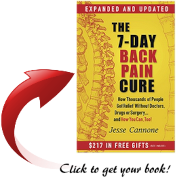(Image compliments of AKARAKINGDOMS / FreeDigitalPhotos.net)

What does adiponectin, ghrelin, insulin and cortisol have in common with fat loss? For starters, they are hormones that exist within our bodies, and hormones are “chemical messengers released by cells and glands in your body and carried in your blood. When they reach a receptor, the cell reads the message and carries out the job it is told to do.” And, you can read more about it on the article titled “The Weight Hormones …“, as it gives an excellent example on how hormones work in regards to your weight, as well as information on grehlin, insulin and cortisol. Secondly, when there’s too little, too much, or just an imbalance of those hormones, your fat loss efforts seem to never reap any rewards.
Adiponectin The Fat Loss Torch
Have you ever heard of adiponectin? If you haven’t, not to worry … it appears to be a recent discovery. Anyways, it’s a hormone which has been found to quickly multiply your body’s ability to “burn” belly fat. And thus, the more adiponectin you have in your body, the more rapidly you can shed those excess pounds. It has been called the “fat burning torch.” In The Journal of Clinical Endocrinology & Metabolism, researchers summarized that “higher adiponectin levels are associated with better glycemic control, more favorable lipid profile, and reduced inflammation in diabetic women. So, if you want to lose fat and decrease your health risks of insulin resistance and other metabolic disorders, it looks like higher levels of adiponectin are helpful. Click here if you want to read the study ==> “Circulating Adiponectin Levels …”
Ghrelin The Gremlin Of Fat Loss
Just like the movie “Gremlins” with all those gremlins causing havoc in the city, too much ghrelin in your body will cause havoc to your fat loss efforts. In fact, ghrelin is called the “hunger hormone”, which is the source
of your hunger pangs, even the ravenous ones! Adiponectin is known to lower ghrelin levels, and lowering that hormone will reduce your hunger pangs and cravings, and ultimately, helping you lower body fat. The WebMD article “Your Hunger Hormones …” provides you with a solid understanding of ghrelin, and it’s relationship to leptin and fat loss. To continue reading the article, click here ==> “Your Hunger Hormones …“.
Insulin Resistance & Fat Loss
Insulin is a hormone that is secreted by the pancreas in the response to the glucose that resulted from the metabolism of carbs. Its primary function is to send the glucose to your body’s cells for energy or to the liver to be stored as fat. The article titled “Nine Things That Improve Insulin Sensitivity …“, does an excellent job explaining the glucose and insulin interaction, the negative effects of insulin resistance, and ways to increase insulin sensitivity. Insulin resistance results when the cells fail to bind to insulin, and the glucose in the blood is not used for energy. When this occurs, the pancreas continues to pump out more insulin in an attempt to metabolize the glucose, resulting in increased levels of insulin in the bloodstream. And when insulin stays too long in the blood stream, it ends up storing a lot of fat. The article is a very good read. Check it out at “Nine Things That Improve Insulin Sensitivity …“.
Cortisol Overload & Fat Loss
When we experience stress, our bodies release this hormone called cortisol. For the short-term, cortisol is a life saver. It will give you that burst of energy in a life or death situation, and heightens your body’s senses in a red-alert mode ready to take on the challenge. In such situations, your body returns to a normal state after the stressful situation. However, our society has somehow activated our stress hormones so that our bodies never return to that normal state, always harboring some level of cortisol in the bloodstream. And the bad news is that elevated levels of cortisol in the bloodstream results in increased levels of body fat. It also increases your cravings for sweets and carbs, and even breaks down your lean muscle tissue for energy! Oh, and by the way, lack of sleep is also known to increase cortisol levels. To learn more about how cortisol affects fat loss, you can click on the article link titled “Cortisol Connection: Tips on Managing Stress and Weight“.
<<<<<<<<<< <> >>>>>>>>>>



